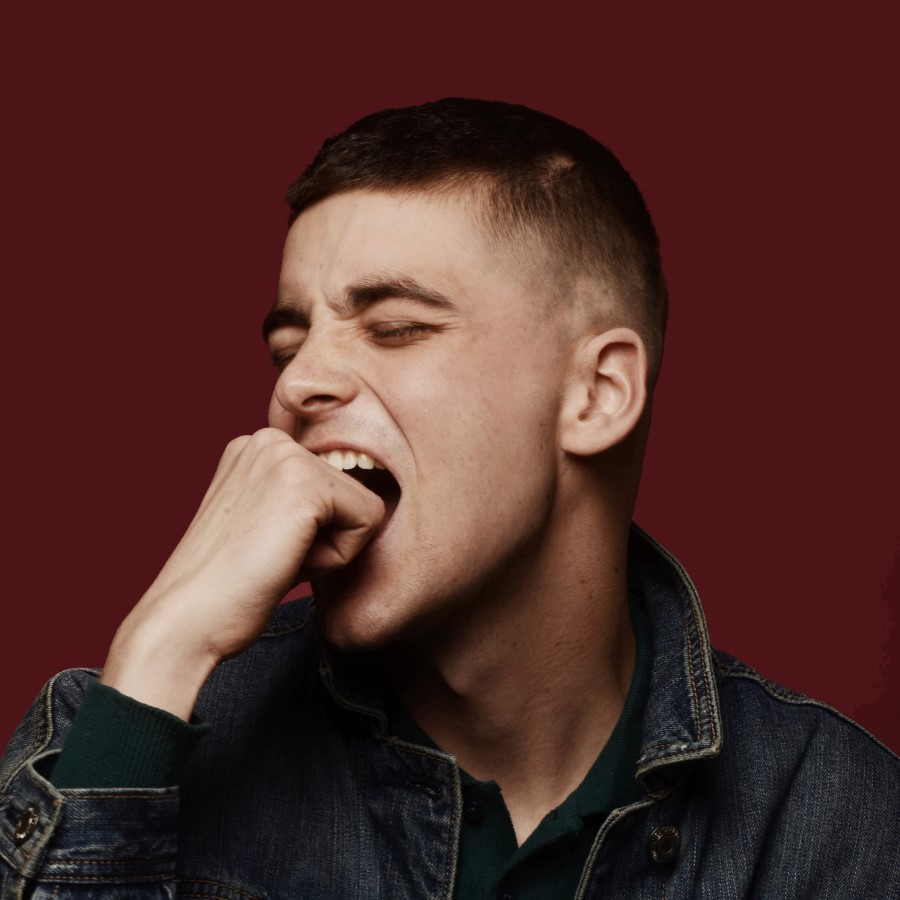Austin Carr is an indie folk pop singer-songwriter based in Los Angeles. Austin loves to blend subversive lyrics about queer relationships with more traditional influences from folk, country, and pop. On his new song “i don’t want to be your friend,” the queer singer-songwriter slaps you in the face with his barbed lyrics while cushioning the stings with a gentle backing track.

Who are some of your musical influences?
When I learned to play the guitar and write songs I was growing up in northern Florida, where it feels like there are ten country radio stations for every one mainstream pop station. So country singer-songwriters have always been a big influence on my writing, even if that’s not immediately obvious from my music. My favorite musicians are those who take a more traditional musical genre, like country or folk, and use it as an avenue to write about really nuanced, subversive topics. The Chicks, Kacey Musgraves, The Civil Wars, and Dolly Parton have always been big influences to me for those reasons.
Explain the inspiration for “i don’t want to be your friend”
Something I love about folk and country music is its ability to tell complex stories with very simple lyrics and melodies. When I sat down to write this song, I wanted to honor that in my lyrics. This particular song actually began in some form as an assignment from my therapist to “write a love letter” to a person who had deeply hurt me and who I couldn’t figure out how to forgive. As I thought about all the ways I could tell the story of that heartbreak and loss, I kept coming back to the simple phrase, “I don’t want to be your friend,” which to me, is the most heartbreaking thing to have to tell someone.
The moment you go from being a close, intimate part of someone’s life to not even wanting to be their friend is the most devastating part of a break up or fall-out for me. And I liked the idea of couching that intense emotion in a very simple, almost child-like phrase.
Do you have any songwriting tips you can share?
I think pretty much everybody gives this advice, but it’s still true so I’ll say it again. Songwriting takes a lot of practice and for every one song you’re proud of there are probably going to be 500 songs that you’ve written and tossed along the way. So I guess my advice for new songwriters is to keep track of the little bits and pieces of lyrics that you like, even if you end up trashing the song as a whole. A lot of the music that I’m most proud of started as a snippet from a song I hated.
How do you feel your queer identity ties into your performance style or music?
My queer identity plays a large part in the music I make because I’ve always preferred to write very personal, diary-entry style songs. It’s the only way I really know how to write, for better or for worse. But because of that, it’s always been important to me to be honest about the fact that these love songs are written about boys. When I was growing up, most of the gay musicians I knew of had to intentionally write their lyrics in a vague way or direct their lyrics at girls if they wanted to have career success. While I completely understand why they did that, it was always something that bothered me as a kid, so I promised myself if I ever put out music I would be honest about who I was writing about.
Luckily now with as much queer representation we have in music, the need to obscure our identities is starting to become a thing of the past. And I’m really fortunate that I get to live in a time where writing songs about boys isn’t a career-ruining decision to make.
How do you feel your coming out journey plays into your music?
To be honest, I had a pretty terrible coming out experience. I grew up in a fundamentalist Christian community my entire life, went to a religious school, and then got a degree from a Christian college. It seems like things are changing for the better in many Christian churches now, but at the time, being gay in a community like that was a very shameful and isolating experience.
It sounds cliche to say, but growing up with that kind of pain and rejection made me the person I am today and gave me the perspective that I now bring with me to everything I do. I don’t really know who I would be right now without that experience, so there’s no point in letting that pain control me. On the positive side, I think a lot of queer people have the same scars that I do, and being able to connect with them has been a really cool experience. I’ve always connected with the phrase “be the person you needed when you were 16,” and that’s something I keep in mind with music and my life in general.
Austin Carr — Instagram
